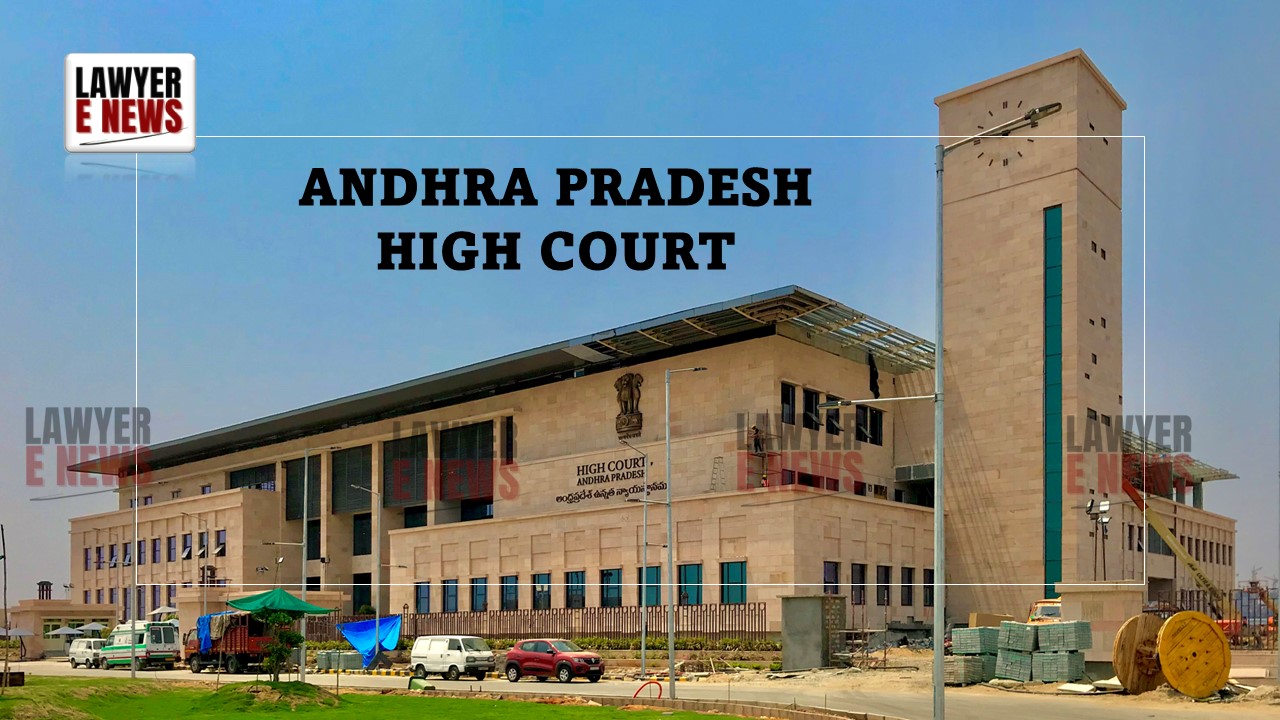-
by Admin
15 February 2026 5:35 AM



On September 13, 2024, the Andhra Pradesh High Court delivered a significant ruling in Criminal Appeal Nos. 1088 of 2016 & 286 of 2016, overturning the convictions of a husband and his sister-in-law in a dowry death case. Previously, the Sessions Court had convicted the husband under Section 304B of the Indian Penal Code (IPC) for dowry death and the sister-in-law under Section 201 IPC for causing the disappearance of evidence. However, the High Court acquitted both appellants due to a lack of substantive evidence proving harassment in connection with dowry demands.
The deceased, Salle Pushpa, was married to Accused No. 1 on August 2, 2012. At the time of marriage, the deceased's parents had given Rs. 25,000 and various gold and silver ornaments. However, post-marriage, it was alleged that Accused No. 1 began harassing the deceased for an additional dowry of Rs. 20,000. On September 26, 2012, the deceased was found dead in her matrimonial home. The prosecution alleged that Accused No. 1 harassed and abetted the deceased's suicide, and Accused No. 2 attempted to remove evidence by tampering with the scene of death.
Initially, the case was registered under Section 174 CrPC, as the death was reported as due to fits. Later, following further investigation, the case was altered to include charges under Section 304B IPC. The Sessions Court found Accused No. 1 guilty of dowry death, sentencing him to life imprisonment, and Accused No. 2 guilty under Section 201 IPC, sentencing her to three years of rigorous imprisonment and a fine of Rs. 25,000.
Harassment and Dowry Demand: The core issue was whether the deceased was subjected to cruelty or harassment in connection with dowry demands shortly before her death, as required for a conviction under Section 304B IPC. For Section 201 IPC, the court had to determine if there was an intention to cause the disappearance of evidence.
Arguments from the Defense: Counsel for Accused No. 1 argued that there was no evidence proving harassment or demand for dowry by Accused No. 1. They highlighted that key witnesses, including the deceased's parents (P.Ws. 1 and 2), did not support the prosecution and were treated as hostile. Similarly, the counsel for Accused No. 2 contended that there was no evidence to implicate her under Section 201 IPC and that the prosecution's case was a result of enmity.
Arguments from the Prosecution: The prosecution maintained that there was sufficient evidence indicating harassment and demand for dowry by Accused No. 1, who was also a habitual drunkard. They relied on testimonies of other witnesses (P.Ws. 3 to 6) to establish the charges.
Review of Evidence: The High Court scrutinized the testimonies and evidence presented by the prosecution. The Court found that key prosecution witnesses, including the deceased’s parents (P.Ws. 1 and 2), did not provide any evidence of dowry harassment. They were declared hostile, and their testimonies failed to support the prosecution's case.
Lack of Harassment Evidence: P.W. 3, the deceased's sister, testified about receiving a call stating that the deceased fell down unconscious, and upon arriving, found ligature marks on the deceased’s neck. However, she admitted enmity towards Accused No. 2 and lacked personal knowledge of any harassment. Similarly, P.W. 4, P.W. 5, and P.W. 6's testimonies did not conclusively prove any dowry demand or harassment.
Non-Applicability of Section 113B Presumption: The Court emphasized that the presumption under Section 113B of the Indian Evidence Act, which allows the court to presume dowry death if it is shown that the woman was subjected to cruelty related to dowry demands soon before her death, was not applicable here due to the absence of evidence. The Court stated, "In the absence of such evidence, presumption under Section 113B of the Indian Evidence Act 1872 cannot be drawn."
Acquittal of Accused No. 2: Regarding Accused No. 2, the Court found no direct evidence showing her involvement in tampering with the scene to cause the disappearance of evidence. The Court noted, "A vague statement has been made to that extent basing on which it cannot be concluded that the accused made a false representation to the witnesses." The Court referenced a Supreme Court ruling which underscored the need for concrete evidence in offenses under Section 201 IPC.
Supreme Court Precedent: The High Court referenced a judgment by the Supreme Court dated March 29, 2019, in Criminal Appeal No. 1550 of 2011, which highlighted that, without clear evidence, a conviction under Section 201 IPC cannot be sustained.
The Andhra Pradesh High Court concluded that there was a lack of evidence to prove that the deceased was subjected to harassment or cruelty in connection with a demand for dowry soon before her death. Consequently, the Court set aside the conviction and sentence of both appellants. Accused No. 1 was acquitted of the charge under Section 304B IPC, and Accused No. 2 was acquitted of the charge under Section 201 IPC.
Date of Decision: September 13, 2024
State of Andhra Pradesh vs Accused No.1and 2
